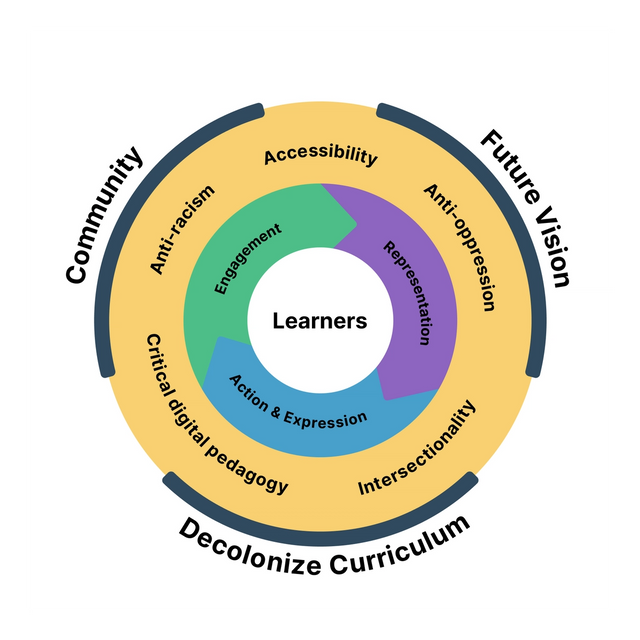A Welcome Message

You are about to embark on a learning journey that focuses on the Universal Design for Learning (UDL) framework and expands its current application to address the impacts and intersectionality of oppressions that our learners may experience as barriers to reaching their full learning potential. These barriers may include anti-Black racism, anti-Indigenous racism, homophobia, transphobia, sexism, ableism, etc. In this course, you will explore the UDL framework and examine its intersections with complementary initiatives such as antiracism, decolonization, the social model of disability, and others. Together, we will reflect on how the UDL framework offers opportunities to co-design inclusive learning environments with our students and colleagues. Then we will apply what we learn to our work in education. By honouring our students’ lived experiences and unique strengths and challenges, we work towards creating welcoming learning environments where all students belong and thrive.
Course Outcomes
When you complete this certificate course, you will be able to:
- Examine the ways that the UDL, anti-oppressive practice (AOP), antiracism, and decolonization frameworks support learners.
- Assess perceptions about student motivation, social inclusion, barriers to learning, assessment, and learner agency.
- Construct flexible teaching and learning environments that honour learner variability, diversity, and lived experience.
- Reflect on ongoing practice and discovery within a learning community context guided by key elements and principles of UDL.
- Explore the importance of cross-disciplinary collaboration in creating shared learning environments (informed by UDL, AOP, antiracism, and decolonization).